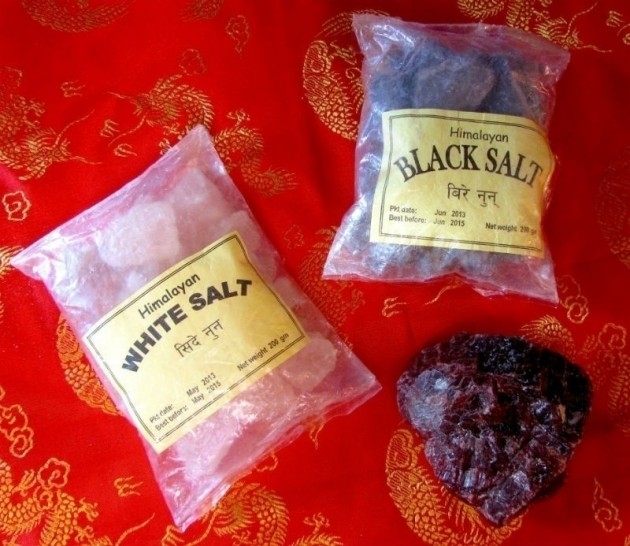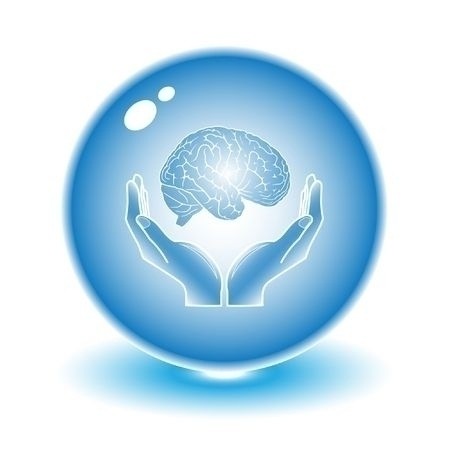Gastroesophageal reflux disease (GERD) is a disorder in which contents of the stomach or small intestine repeatedly move back up into the esophagus (tube connecting the throat to the stomach). This regurgitating action is called reflux. Reflux causes heartburn, and although most people have an attack of heartburn at some point in their lives, persistent reflux and severe heartburn may indicate GERD.
Normally when a person swallows, the muscular walls of the esophagus move in waves to push the food down into the stomach. Right after the food enters the stomach, a band of muscle (the lower esophageal sphincter) closes off the esophagus. If the muscle fails to close tightly enough, the stomach contents can back up into the esophagus causing heartburn and other symptoms of GERD.
Substances in the digestive juices from the stomach (namely, acid, pepsin, and bile) can damage the inner lining of the esophagus, causing inflammation ulcers (open sores), and, possibly, precancerous changes to cells (called Barrett's esophagus).
Signs and Symptoms
Heartburn -- a burning sensation under the sternum in the chest -- is the primary symptom of GERD. Heartburn often occurs after a meal and worsens at night, when you are lying flat. It is more likely to occur following a heavy meal, or if you bend, lift, or lie down just after eating.
Other symptoms of GERD include:
Other symptoms of GERD include:
- Regurgitation of food
- Belching
- Nausea and vomiting
- Chronic cough, wheezing
- Sore throat, hoarseness or change in voice, difficulty swallowing
- Chest pain
GERD is common in infants and young children, but is generally mild. If an infant has the following symptoms, however, call a physician as soon as possible.
- Ongoing coughing
- Wheezing, gasping
- Severe vomiting
- Frequent burping
Causes
GERD can often be traced to the malfunctioning of the lower esophageal sphincter (LES). The LES is a muscle responsible for opening and closing the lower end of the esophagus, which it accomplishes by relaxing and contracting at appropriate times. The LES may weaken or lose tone, allowing the contents of the stomach to escape back up the esophagus. Any of the following may compromise the LES:
- Pregnancy
- Obesity
- Hiatal hernia (a condition in which a portion of the stomach protrudes through an opening in the diaphragm where the esophagus normally fits snuggly and passes into the stomach.)
- Recurrent or persistent vomiting
- Nasogastric tubes (these are inserted through the nose and into the stomach for a variety of medical reasons)
- Smoking cigarettes
- Some medications including calcium channel blockers (a class of meds used for high blood pressure such as amlodipine, diltiazem, felodipine, nifedipine, nisoldipine, and verapamil), anticholinergic drugs (including benztropine, biperiden, dicyclomine, hyoscyamine, isopropamide, and scopolamine), iron pills, non-steroidal anti-inflammatory drugs (NSAIDs including aspirin and ibuprofen), potassium, dopamine (for Parkinson's disease), sedatives, bisphosphonates (alendronate and risedronate for osteoporosis), and beta blockers (such as atenolol, labetalol, metoprolol, nadolol, pindolol, and propranolol, for high blood pressure or heart disease.)
Risk Factors
- Heavy meals
- Lying down or bending after a meal
- Eating immediately prior to exercise
- Prior esophageal surgery
- Esophageal stricture (narrowing of the esophagus)
- Cigarette smoking
- Alcohol intake
- Psychological stress
Children with the following conditions are at particular risk for GERD:
- Neurologic impairment
- Food allergies
- Scoliosis
- Frequent vomiting
- Cystic fibrosis
- Digestive disorders
Diagnosis
GERD is generally not difficult to diagnose. Your symptoms, what you eat and drink, medications you are taking, and your lifestyle are usually enough to make a clear diagnosis. If the diagnosis is unclear to your doctor, one or more tests may be performed:
- Upper endoscopy, calledesophagealgastroduodenoscopy (EGD), which involves the insertion of a tube down your throat into the esophagus to look for signs of reflux, inflammation, ulcers, or other changes in the esophagus.
- A barium swallow, which involves visualization of the esophagus through a series of xrays following the swallowing of a substance called barium. This looks at the movement of the esophagus and whether any fluid comes back from the stomach into the esophagus.
- Manometry measures the pressure of the sphincter muscle; if low, this is consistent with GERD.
Lifestyle
Making changes to or avoiding certain habits can go a long way to relieving or preventing your symptoms of GERD.
The following are typical suggestions for people with GERD:
The following are typical suggestions for people with GERD:
- Avoid behavior that does not allow food to easily move down into and through the stomach. This includes bending, lying down, or participating in jarring exercises soon after a meal.
- Don't eat heavy meals
- Avoid acidic foods and drinks. These include caffeinated beverages, decaffeinated coffee, and orange juice
- Avoid alcohol, chocolate, spearmint, and peppermint. These can relax the low esophageal sphincter.
- Avoid carbonated beverages
- Avoid eating fatty foods, including full-fat milk, which also may relax the lower esophageal sphincter tone.
- Lose weight if you are overweight
- Quit smoking
- Avoid medications that provoke symptoms. These include smooth-muscle relaxants such as calcium
- channel blockers (including amlodipine, diltiazem, felodipine, nifedipine, nisoldipine, and verapamil, which are used for high blood pressure), anticholinergic drugs (including benztropine, biperiden, dicyclomine, hyoscyamine, isopropamide, and scopolamine), iron pills, non-steroidal anti-inflammatory drugs (NSAIDs including aspirin and ibuprofen), potassium, dopamine (for Parkinson's disease), sedatives, bisphosphonates (alendronate and risedronate for osteoporosis), and beta blockers (such as atenolol, labetalol, metoprolol, nadolol, pindolol, and propranolol, for high blood pressure or heart disease.)
If you experience more frequent symptoms at night, you may be relieved by:
- Raising the head of your bed about six inches
- Avoiding bedtime snacks
- Stress may worsen symptoms. Therefore, relaxation, such as yoga, tai chi, and meditation are worth
- considering, as part of your whole, comprehensive treatment plan.
Medications
The main aim of drug treatment is to control the acidity of the stomach. There are several different types of medications used for GERD, and each works in a different way. Over-the-counter antacids neutralize the stomach acids; histamine H2 blockers interfere with the production of acid; and proton pump inhibitors suppress molecules in the glands responsible for the release of acid.
Drawbacks of drug therapy for GERD
Anti-reflux drugs are like a double-edged sword. They may be very effective in suppressing gastric acid secretion, but strong inhibition of gastric acid (HCI) secretion can at the same time cause an array of digestive problems. This is because people who are taking these agents do not secrete adequate gastric acid and enzymes for digesting food that is present in the stomach. This, in turn, causes indigestion, bloating, flatulence, constipation, esophageal candidiasis plus possible side effects affecting other organs. These side effects are more severe when a high protein diet (high content of meat, cheese, dairy products, & beans) is consumed, since protein digestion is initiated in the stomach and is essentially the only type of enzymatic digestion that occurs there.
Drawbacks of drug therapy for GERD
Anti-reflux drugs are like a double-edged sword. They may be very effective in suppressing gastric acid secretion, but strong inhibition of gastric acid (HCI) secretion can at the same time cause an array of digestive problems. This is because people who are taking these agents do not secrete adequate gastric acid and enzymes for digesting food that is present in the stomach. This, in turn, causes indigestion, bloating, flatulence, constipation, esophageal candidiasis plus possible side effects affecting other organs. These side effects are more severe when a high protein diet (high content of meat, cheese, dairy products, & beans) is consumed, since protein digestion is initiated in the stomach and is essentially the only type of enzymatic digestion that occurs there.
Suggested Nutritional Supplementation
- Zinlori 75 - 2 tablets twice daily, then 1 tablet twice daily for maintenance. Zinlori 75 contains a high potency, patented† zinc-carnosine complex formulated to provide relief of gastric discomforts. Zinc-carnosine supports the healthy ecology, natural defenses, and integrity of the gastric mucosal lining.
- Ulcinex - 1-2 tablets 20-30 min. before meals. For fast relief - 2 tablets as needed. Standardized herbal support for healthy stomach function
- Anti-Flux - 1-5 tablets after meals. Each tablet should be chewed briefly and swallowed with a sip of water. Anit-Flux, unlike drugs, acts locally by coating the upper gastric and esophageal mucosal surface. Because it does not neutralize gastric acid appreciably, or suppresses its production, it will not interfere with important digestive, antimicrobial, and metabolic functions of gastric acid.
- D-139 Gerd Ex - 10-15 drops under the tongue 3-4 times daily. In cases of acute symptoms, administer 5 drops every 10 minutes until symptoms subside or relief is achieved. Drops should be held under tongue for approximately 30 seconds before they are swallowed. This will ensure some sublingual absorption, which will enhance the therapeutic activity of the active ingredients.
Dietary Suggestions
FirstLine Therapy® Diet






